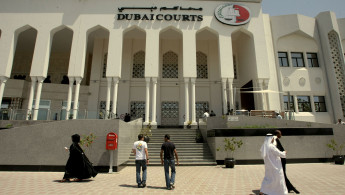Tolerant or repressive? UAE passes tough anti-discrimination law
On paper, the UAE's new anti-hate law appears to be a progressive step to end discrimination in the Gulf country.
Passed earlier in the week, the legislation bans discrimination based on religion, caste, creed, doctrine, race, colour, or ethnic origin. Offenders facing fines of more than $500,000 and more than 10 years in jail.
Nothing new?
Critics say much of the new legislation is already covered by the constitution and cyber-crime and anti-terrorism laws. They fear it might be used to suppress free speech under the pretext of progression.
"The problem is the selective implementation of the law. Those who are directly working for the government have been leading speeches of hatred against groups of a certain intellectual orientation or sects, and are never brought to justice," says Ahmed Mansoor, an Emirati human rights campaigner.
Previous attempts by Mansoor to highlight "hate speeches" by leading various influential figures were ignored by the authorities, he says. He fears the new law will be used selectively against opponents of the regime.
One paradox, he says, is that the UAE still requires people to state their religion and sect on mandatary personal information forms during job applications.
Mansoor asks, "To my knowledge, for many years certain sects were not allowed jobs in the security apparatus, so will this be considered discrimination or not?"
Existential threat
Terms such as "kafir", meaning "infidel" or "unbeliever", will be banned under the new legislation and are widely used by organisations such as al-Qaeda and the Islamic State group.
These groups have denounced Gulf leaders and politicians with such terms. It has also been used to legitimise the killing of Muslims and non-Muslims the groups hold in contempt.
The UAE, which is part of the anti-IS international coalition and prides itself on its multicultural communities, faces a very real threat from these groups.
Earlier this month, a 30-year-old Emirati woman was executed by firing squad for the murder of an expatriate in an extremist-motivated attack.
In recent months, the peace has been shattered in the Gulf by a series of bombings of Shia mosques in Saudi Arabia and Kuwait, and almost all countries in the GCC, including the UAE, have sizeable Shia minorities.
Supporters of the new legislation say it is a necessary to take a tough line on all "takfiri" rhetoric - in speech, print and online - and the intolerance that it breeds.
Abu Dhabi says it wishes to promote an "environment of tolerance, broadmindedness, and acceptance" with the new law, free from "religious hate and intolerance".
However, human rights groups also believe it could be used - when necessary - as a law of suppression.
Nicholas McGeehan, of Human Rights Watch, says: "The context is the UAE's full-on assault on freedom of expression, which has more or less killed off free speech and precludes the formation of a healthy and active civil society."
HRW workers told al-Araby al-Jadeed that what they had seen of the law can be left "wide open to interpretation" by a non-independent judiciary.
Blasphemy
Saudi Arabia's anti-blasphemy legislation - which mirrors the UAE's anti-discrimination law in some ways - has been used to crack down on liberal and secular activists in the country.
Saudi judges used anti-blasphemy laws to sentence human rights activist, Raef Badawi to a jail term and flogging.
UAE authorities have clamped down on democratic, liberal and secular dissent since the Arab Spring began in 2011, with dozens of activists and bloggers jailed.
Freedom House described the UAE's Federal Law 15, which covers press matters, as "one of the most restrictive press laws in the Arab world". It prohibits "criticism of the government, allies and religion".
In November 2014, the UAE has also passed anti-terrorism laws that classed the Muslim Brotherhood as a "terrorist organisation", with tough punishments for membership to the Islamist group.
However, the new law does not appear to cover anti-gender discrimination - an omission of HRW says is "startling".
Although the UAE has made huge strides to encourage women to participate in employment, business and government, family law is still heavily weighted in the man's favour.
The fact that Emirati women who marry non-Emiratis cannot pass on their nationality to their children has been widely condemned as "discriminatory".
Despite the UAE's efforts in shaping the country to be the region's new "Andalucia" with an open, progressive and modern mindset, it wants this to be on its own terms with tough laws and security in place.


![President Pezeshkian has denounced Israel's attacks on Lebanon [Getty]](/sites/default/files/styles/image_684x385/public/2173482924.jpeg?h=a5f2f23a&itok=q3evVtko)



 Follow the Middle East's top stories in English at The New Arab on Google News
Follow the Middle East's top stories in English at The New Arab on Google News


